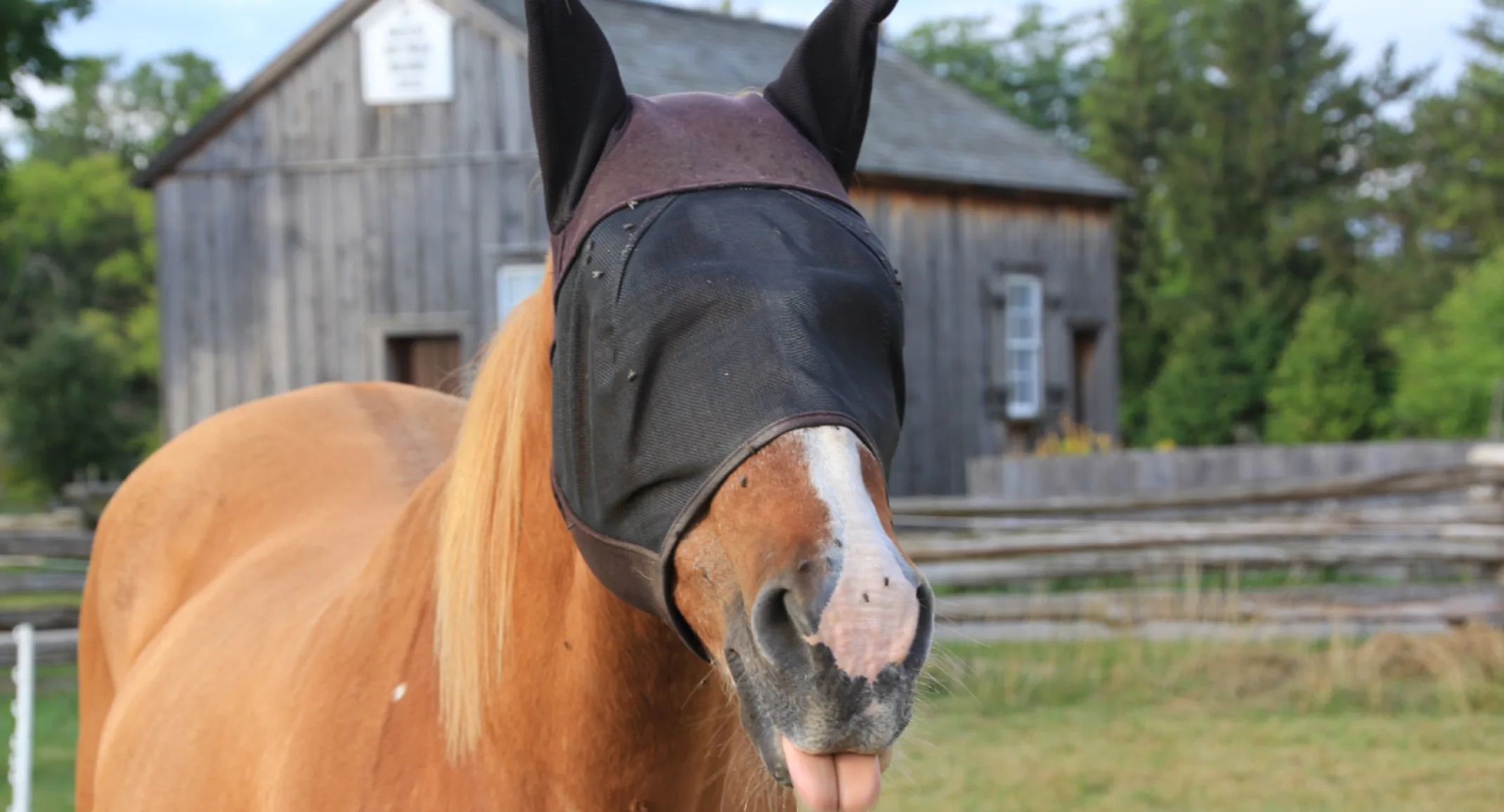Insects
General

As spring gets into swing and summer is fast approaching, we begin to think about all the fun things the nice weather holds for us and our horses. Unfortunately now is also the time to start thinking about all of the insects and other pests that enjoy the weather as much as we do. The vast number of flying and crawling critters are more than just a nuisance to our horses. They have significant impact on their health and well-being. Lowering their numbers and preventing them from harassing your horses will go a long way toward improving the summer for everyone.
Face flies, stable flies, and house flies torment the horse by landing on their bodies, especially around any area of moisture, so that they can feed. This is physically bothersome to the horse and can lead to eye irritation, foot stomping, and restlessness. Sometimes the eye irritation can even progress to conjunctivitis and corneal ulcerations. The cheapest and simplest way to prevent eye irritation is to have your horse wear a well-fitted fly mask whenever he is turned out and in the stall if the barn interior has a fly problem. Remember to remove the mask daily and inspect his face for any rubs or irritation. Horses that become very restless and stomp their feet should wear a fly sheet and boots during turnout to reduce their discomfort.
Mosquitoes, horse flies, deer flies, black cattle flies, and black flies (Culicoides or “no-see-ums”) take annoyance up a notch to discomfort by biting the horses so that they can feed on their blood. In addition to the obvious pain caused by the bite, some horses are quite allergic especially to the Culicoides. This results in a condition called “sweet itch” or “summer itch.” Affected horses are extremely itchy and will rub and scratch themselves to the point of hair and skin loss. The most commonly affected areas or the neck, tail head, and the belly. Prevention is accomplished by stabling the horse during dawn and dusk when these insects are most active and having a strong fan blowing on the horse. Severely affected horses may need to be treated by a veterinarian to prevent worsening of the signs.
Mosquitoes don’t pose the same risk for an allergic reaction, but they certainly can make horses miserable when they’re turned out during the night. Most fly sprays are ineffective against these critters and they can bite right through larger mesh fly sheets. The best protection against these pests are sprays that contain permethrin, a synthetic repellent. Suitable ones include Mosquito Halt, Bug Block, and Pyranha.
The large biting insects, horse flies, deerflies, and black cattle flies, probably torment the normal horse more than any other insects. Their bites are extremely painful, and just their presence can make usually placid horses into crazed beasts that will do anything to rid themselves of the pests. To make matters worse, fly sprays are minimally effective. The best thing is to supply your horse with a heavy duty fly sheet and have a large shed or barn available for shelter if he must be turned out during the day. These insects do not like darkness or shade so they will usually stay out of buildings. Turning your horse out only at night is a fairly simple way to prevent problems from these insects.
No bug –blocking strategy will be effective if there are overwhelming numbers of flying pests on the property, but common sense will help lower their numbers. Clean stalls every day and dispose of manure as far from the barn as possible. Manure in small paddocks and run-in sheds should be picked up on at least weekly basis to reduce areas for the flies to breed. . Fly predators, tiny parasitic insects that feed on fly larva can help to reduce the fly population, but their effectiveness depends on proper use. Consult suppliers for more information on them. All containers capable of holding water should be either emptied or cleaned weekly to eradicate mosquito breeding areas. All of these steps will go a long way toward making the summer much more pleasant for both you and your horse.
Michelle Egli, DVM
Delmarva Equine Clinic
